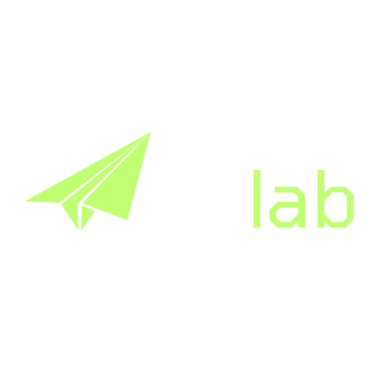Kitchen Bytes I
How AI can help collect, analyze, and connect cultural food knowledge in international school communities
8/1/20254 min read


Kitchen Bytes I: Preserving Cultural Food Heritage Through AI-Powered Documentation
The Story Behind the Project
Whenever I walk into my school's cafetorium, I feel like I'm in the middle of the world's food festival. Living in the Netherlands where boterham met kaas is standard, peeking into my students' lunchboxes and smelling different aromas is another experience entirely. The diversity inspires me to create something to preserve the beauty of it.
This moment sparked the development of Kitchen Bytes I, an AI-powered platform designed to document and preserve cultural food heritage while revealing the invisible threads that connect our diverse food traditions.
I'm excited to present this concept at the upcoming International Education Alliance (IntEd Alliance) Annual Conference in September, where educators from around the world gather to explore innovative approaches to international education and global citizenship.
The Challenge in International Schools
International schools are uniquely positioned as cultural meeting points—"salad bowls" where multiple identities intersect and engage. Yet traditional approaches to intercultural education often treat culture as static displays rather than living, breathing knowledge systems.
We carry incredible cultural wealth in our food traditions, but this knowledge rarely finds meaningful space in formal curricula. Meanwhile, we're missing opportunities to help students recognise the deep connections between their personal food stories and broader themes of migration, cultural adaptation, and human resilience.
How do we honour and preserve this cultural knowledge while helping students develop genuine intercultural understanding?
The Solution: AI-Enhanced Cultural Documentation
Kitchen Bytes I creates a digital storytelling platform where we can document our family food heritage through rich, multimedia narratives. Think of Facebook, but for food. The system combines human storytelling with machine learning analysis to reveal patterns and connections across cultures. Kitchen Bytes I creates a digital storytelling platform where students can document their family food heritage through rich, multimedia narratives. The system combines human storytelling with machine learning analysis to reveal patterns and connections across cultures.
Built using modern web technologies including React, JavaScript, responsive design, and behavioural analytics, the platform demonstrates how contemporary digital tools can support culturally sustaining pedagogies.
Core Features
Multimedia Storytelling Tools
Photo and video documentation of cooking processes
Audio recording for family interviews and oral histories
Written reflections on cultural significance and personal memories
Interactive recipe sharing with cultural context
AI-Powered Analysis
Pattern recognition across different cultural food traditions
Historical context generation based on ingredients and techniques
Cultural bridge identification between seemingly different cuisines
Emotional resonance mapping across student submissions
Community Knowledge Building
Collaborative cultural exchange opportunities
AI-generated suggestions for cross-cultural connections
Digital portfolio development for assessment purposes
Community presentation and sharing events
How It Works: The UX
When we enter the platform, we're invited to share a meaningful food tradition from our family. The interface guides us through:
Cultural Context: Describing the origin and significance of their chosen dish
Family Stories: Recording memories, interviews, or family narratives
Cooking Documentation: Visual and written documentation of preparation methods
Emotional Connection: Reflecting on what this food means to their identity
AI Analysis: Receiving insights about cultural connections and historical patterns
The AI component doesn't replace human storytelling—it amplifies it. When we share our story about Eid ma'amoul for example, Kitchen Bytes I might identify connections to other celebration foods, similar spice trade routes, or comparable family gathering traditions across cultures.
Educational Impact and Learning Outcomes
For Students
Cultural Pride: Seeing their food heritage valued as legitimate academic knowledge
Intercultural Competence: Discovering unexpected connections with classmates' traditions
Critical Thinking: Understanding how food traditions reflect broader historical patterns
Digital Literacy: Developing multimedia storytelling and documentation skills
Empathy Development: Hearing authentic stories from diverse cultural perspectives
For Us Educators
Culturally Sustaining Pedagogy: Curriculum that builds on rather than replaces student cultural knowledge
Cross-Curricular Connections: Links between food studies, history, geography, and social justice
Assessment Innovation: Portfolio-based evaluation of intercultural understanding
Community Engagement: Authentic partnerships with families and cultural organisations
Real-World Applications
Cultural Exchange Events: AI-generated connections can inform cross-cultural cooking workshops and food festivals that go beyond surface-level sharing.
Historical Research Projects: Students can explore how their family food traditions connect to broader patterns of migration, trade, and cultural exchange.
Community Partnerships: Local cultural centers and immigrant service organizations can contribute to and benefit from the documented knowledge.
Peace Education: Understanding food connections helps students recognize our fundamental interdependence and shared humanity.
Ethical Considerations and Safeguards
Working with cultural heritage requires careful attention to:
Cultural Ownership: Families and communities control how their traditions are represented and shared.
Sacred Knowledge: Protocols for handling religious or ceremonial food traditions with appropriate respect.
Privacy Protection: Robust data security measures to protect personal family stories and images.
Authentic Representation: AI training data that reflects diverse cultural perspectives rather than reinforcing dominant narratives.
Digital Equity: Ensuring all students can participate regardless of technological access or digital literacy levels.
Looking Toward Implementation
Kitchen Bytes I represents a shift from teaching about culture to learning with culture. Instead of studying others' traditions as exotic artifacts, we contribute our own cultural knowledge while discovering the beautiful patterns that connect us all.
The project aligns perfectly with the IntEd Alliance's commitment to innovative international education approaches. At the conference, I'll be sharing not just the technical implementation but the pedagogical philosophy that drives this work: that our cultural knowledge is an asset, not a deficit.
Due to time constraints and summer holidays, formal testing at school wasn't possible for this initial concept development. However, the project is built on the recognition that students naturally want to share their cultural stories when given meaningful opportunities. Based on observations of student engagement during informal cultural exchanges, there's clear potential for this approach to resonate with learners who want to see their food heritage valued as legitimate academic content and to understand the connections between their experiences and those of their classmates.
The Bigger Picture
Food is humanity's original global language—it crosses borders, builds bridges, and tells stories of resilience, adaptation, and creativity. By combining this universal appeal with AI's pattern-recognition capabilities, Kitchen Bytes I creates space for the kind of authentic intercultural learning our interconnected world needs.
This isn't about using technology for technology's sake. It's about using AI to help us see and understand the incredible cultural wealth our international school communities already possess.
When students realise that their grandmother's cooking techniques share origins with classmates from different continents, when we understand how spice trade routes shaped their family's migration story, when we see their food traditions as part of a larger human narrative of movement and adaptation—that's, I hope, is when real intercultural understanding begins.
Join the Conversation
I'm presenting Kitchen Bytes I at the International Education Alliance Annual Conference as part of exploring how AI can ethically enhance cultural education without replacing human connection and storytelling. The goal is to spark dialogue about innovative approaches to intercultural understanding that honour our international school cultural wealth while developing critical thinking about our interconnected world.
Because ultimately, when we truly value the stories our students and educators bring to school, we're not just building better international education—we're building more compassionate global citizens.
